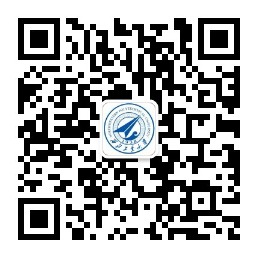To further deepen international collaboration and promote the integration of industry, academia, and research, from November 26 to 29, 2024, Wang Yongxin, Vice Dean of QMES, led a delegation comprising teachers and administrators from NPU and QMUL. Professor Oliver Finnegan, Director of Industry-Academia-Research Collaboration, joined the delegation at the QMUL’s School of Engineering and Materials Science. They visited several key enterprises: the Air Chang’an base under Hainan Airlines, GCL Group in Suzhou, Jiangsu Province, and BOS Taicang, a leading automotive parts manufacturer. During the visit, the delegation engaged in in-depth discussions with the three companies.
On the afternoon of November 26, Wang Yongxin and Professor Oliver, accompanied by a delegation of six from QMES, visited the Hainan Airlines Chang’an Base at Xi’an Xianyang International Airport. The group was guided by Yang Bo, the Training Supervisor, and Jia Ruijing, the Recruitment Supervisor, along with several engineers and trainers. They had the opportunity to observe up close a Boeing 787 civil aircraft undergoing a major station check. The enterprise engineers provided detailed explanations of aircraft structure inspections, maintenance, and component repairs. They also gave an in-depth introduction to the interior facilities and cockpit of the Boeing 787, offering the delegation valuable insights into the high precision and rigorous standards required in the field of aviation maintenance.
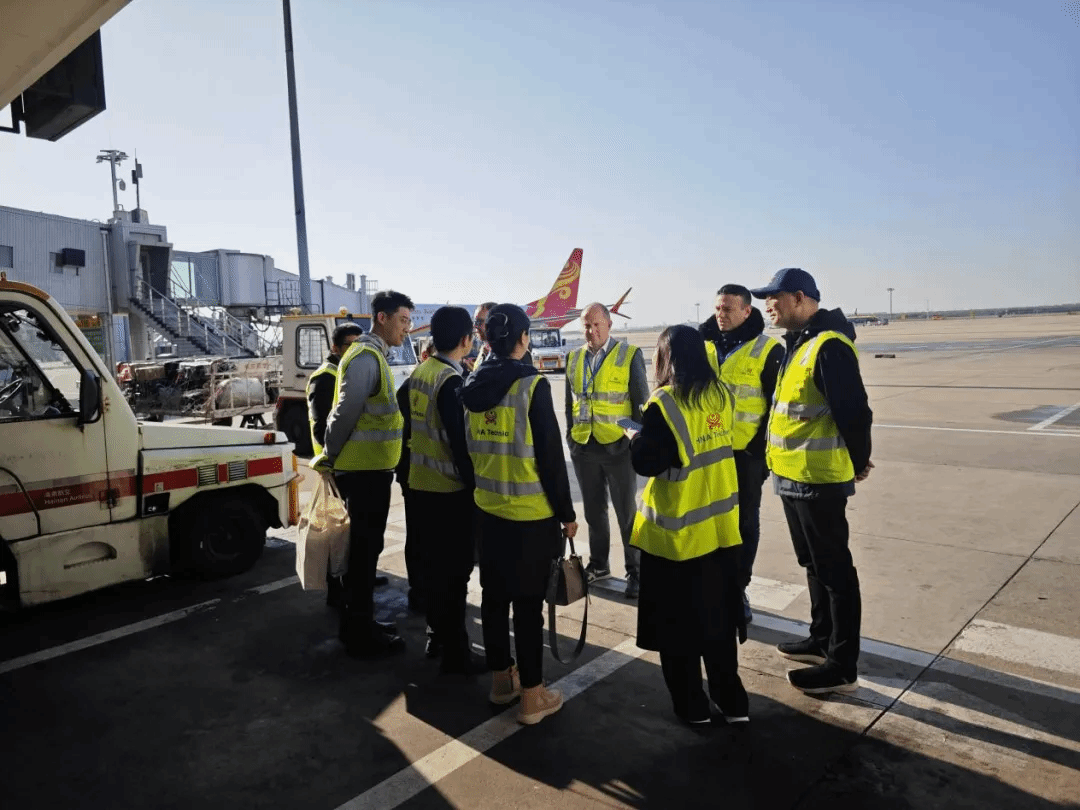
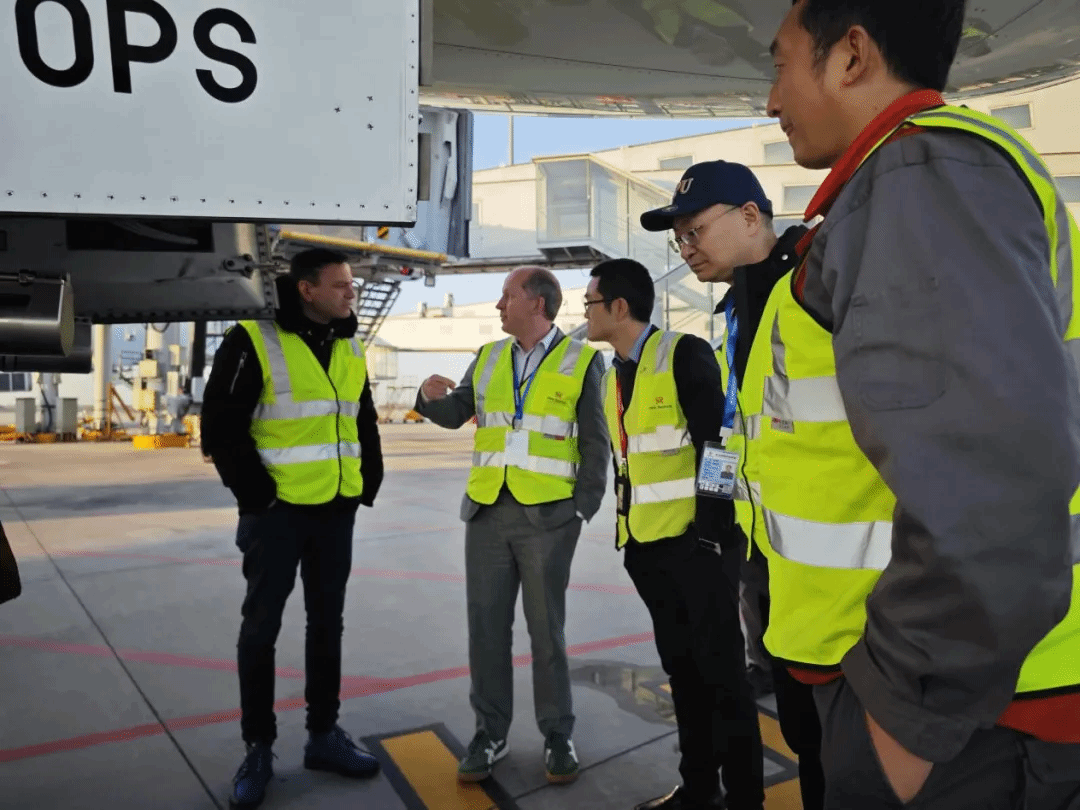
Subsequently, the delegation held a seminar with the technical team of Hainan Airlines. Jia Ruijing first introduced the company and outlined the background and achievements of the collaboration between NPU and Hainan Airlines. Following this, both parties engaged in an in-depth discussion on topics such as international standards in aviation maintenance, composite materials, talent development models, and future directions for cooperation. During the seminar, Professor Oliver shared his experience in industry-academia collaboration at QMUL and engaged in a discussion with Hainan Airlines’ engineers on the technological trends in the field of aviation maintenance and the application of composite materials. The staff from Hainan Airlines expressed their hope to deepen cooperation with QMES and its partner institutions, to jointly advance innovation and application in aviation technology.
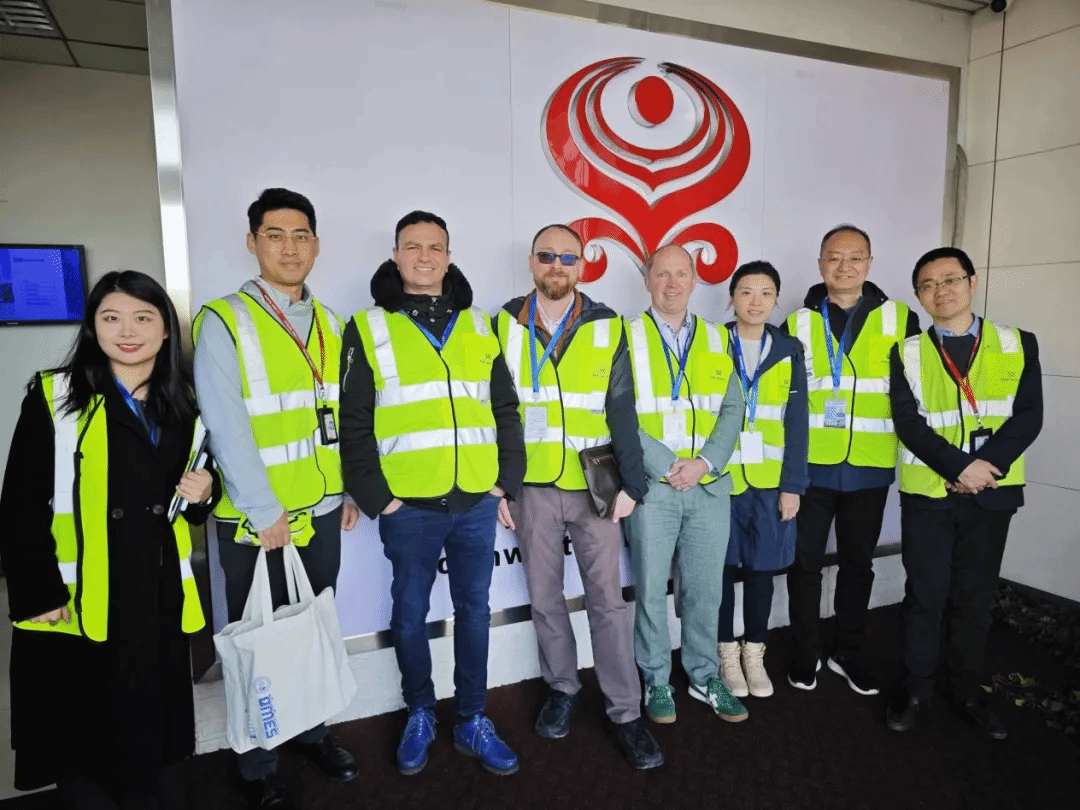
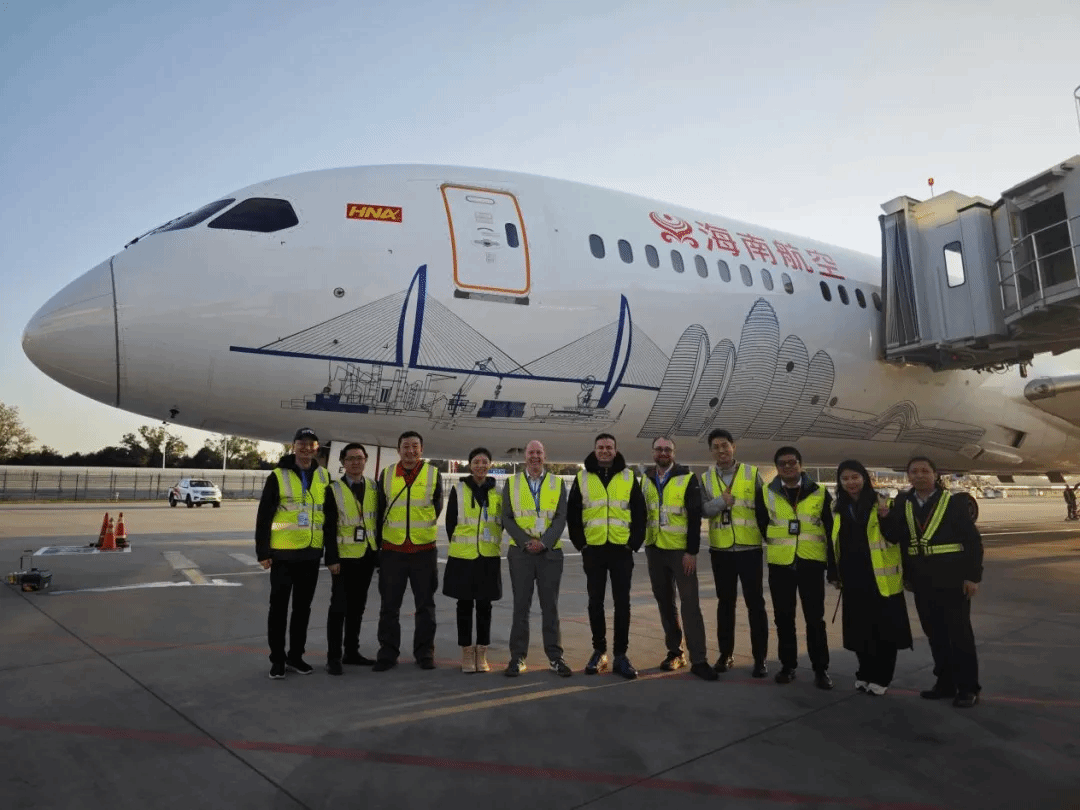
On November 29, under the leadership of Wang Yongxin, Professor Oliver and a delegation of nine faculty members from QMES visited GCL Group. Founded in 2011, GCL Group is a global leader in the new energy industry, with business operations spanning solar thermal utilization equipment development and sales, technology development, and technical consulting, among other areas. The delegation toured the company’s Cultural Centre and Future Energy Pavilion, gaining an in-depth understanding of the corporate structure and its strategic positioning in sectors such as the photovoltaic industry chain, lithium battery storage, hydrogen energy, clean energy, digital energy, and semiconductor materials. Guan Tongliang, GCL University’s Executive President, Fei Zhong, Co-Executive President, and Liu Jiajia, Vice President, warmly hosted the QMES delegation.
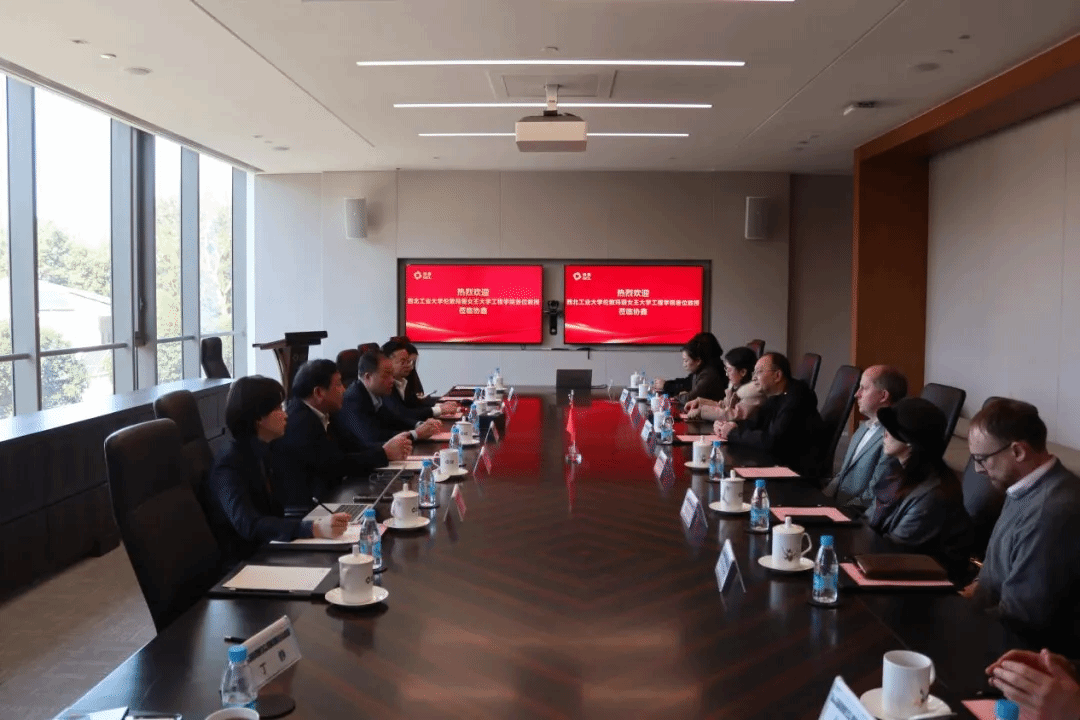
During the seminar, Zhu Kun, Vice President of GCL Group, began by introducing the company’s basic information. He then highlighted the company’s core strategies and technological achievements in the transition to clean energy, while also sharing the latest global developments in the new energy market. He emphasized that there is significant potential for collaboration between both parties in the areas of new energy technology education and industry-academia-research cooperation. He expressed hope that this partnership would help cultivate more high-level talent for the clean energy sector.
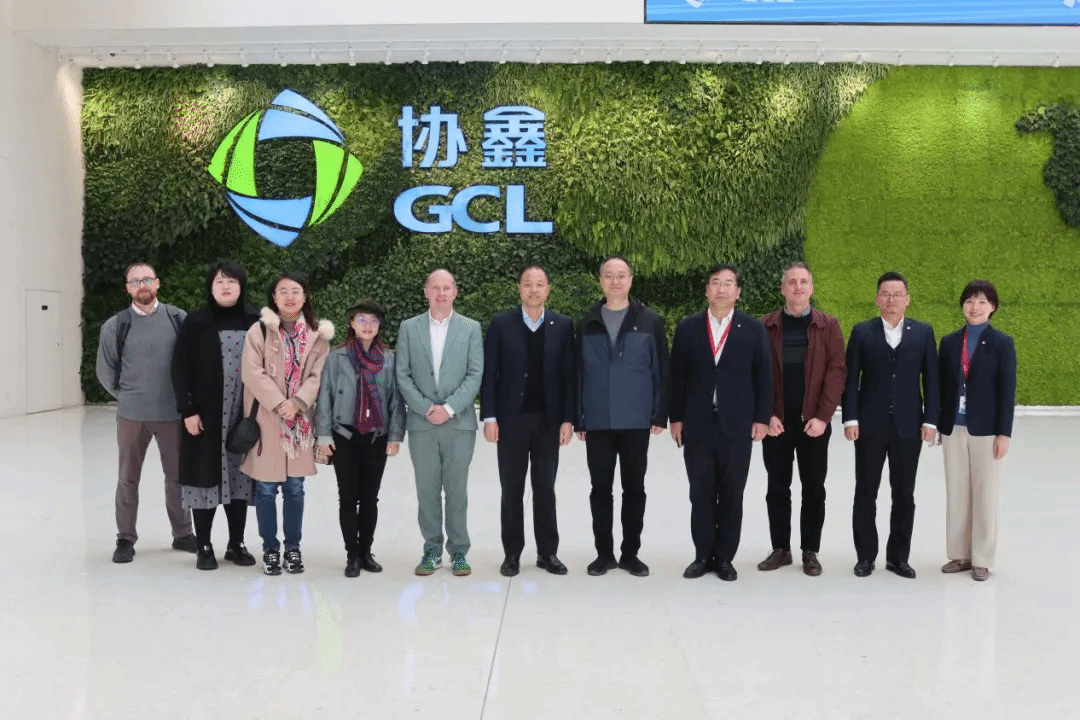
Wang Yongxin then provided a brief introduction to the current status of QMES and the visiting delegation. He engaged in in-depth discussions with senior company executives on topics such as the future development of the Taicang International Talent Training Base, the localisation of top-tier international talent development, and collaboration with the NPU research teams. Both sides also explored proposed support measures, including integrating practical industry-based courses into the student curriculum and funding talent development through pre-paid tuition fees by the company. These suggestions offer valuable insights for further deepening university-industry cooperation and promoting the integration of industry, academia, and research.
Later that afternoon, the delegation held an in-depth discussion with Wang Wanbo, Vice President of Engineering for the Asia-Pacific region, Cheng Zhangquan, Vice President of Finance, and Wu Jun, Engineering Director for China at BOS Taicang. During the meeting, Cheng Zhangquan provided a detailed overview of the company’s operations, highlighting its core strengths in areas such as innovative functional components, mechatronic systems, product processes, development frameworks, technology, and production capabilities. The company also shared its technological achievements in automotive lightweighting, intelligent design, and global supply chain management. Additionally, the discussion explored the widespread application of smart manufacturing technologies in the automotive industry and the increasing demand for high-end technical talent. Both parties engaged in a comprehensive dialogue on how to further strengthen cooperation, drive technological innovation, and foster talent development.
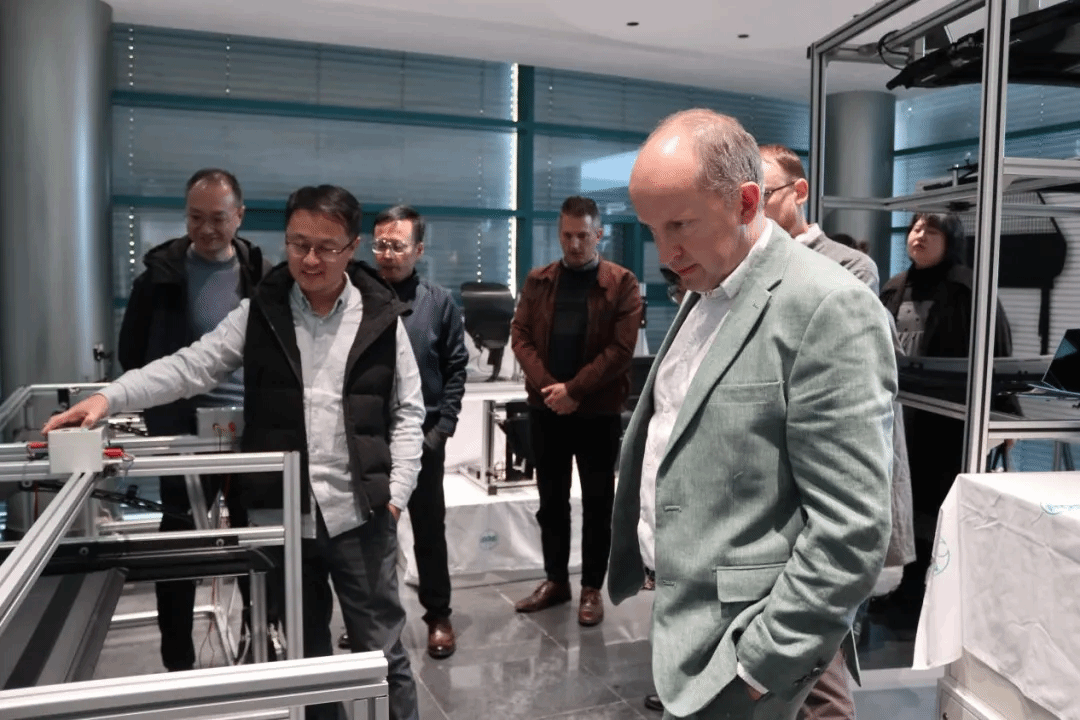
After the seminar, the delegation visited the automated production workshop of BOS Group, where they gained further insights into the company’s latest advancements in smart manufacturing and innovation-driven research and development.
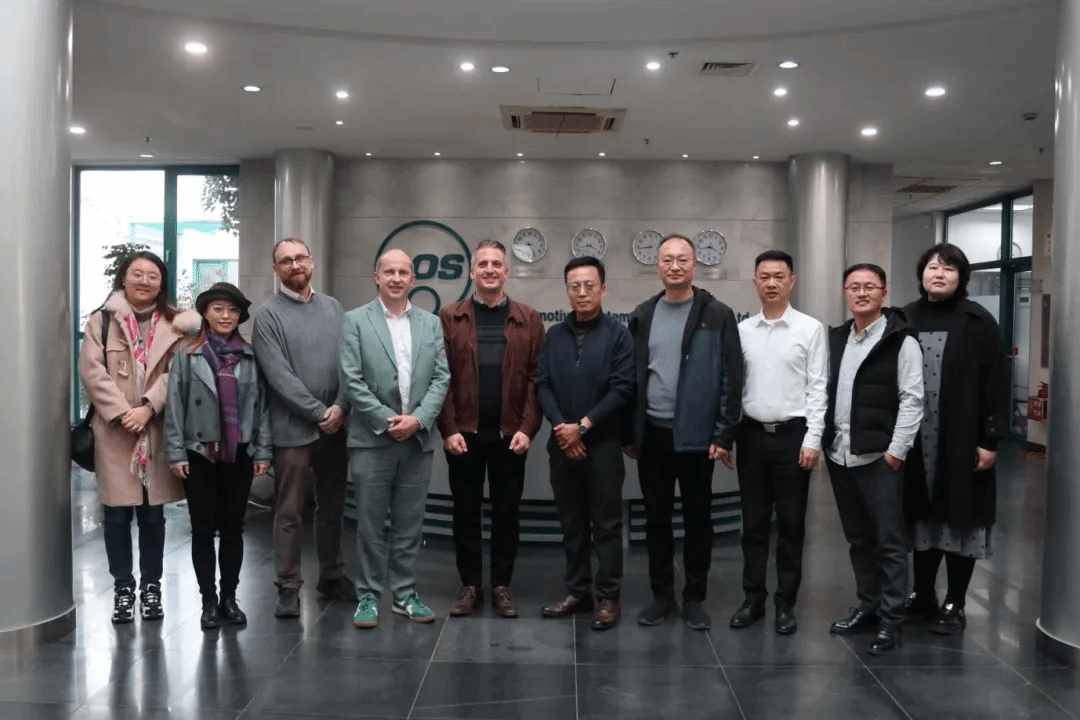
Through on-site visits and themed discussions, the delegation acquired an in-depth understanding of the technological innovations, industry positioning, and development strategies of the three companies in their respective fields. As a representative of the foreign partner university, Professor Oliver brought a unique international perspective, injecting new momentum into the collaboration between QMES and the enterprises. This event has enabled QMES to further deepen its university-industry cooperation, foster innovative practices in the integration of industry and education, and open new pathways for collaborative development in industry, academia, and research, as well as for international cooperation.
QMES will use this event as an opportunity to continue leading with the “Chief Engineer Education Culture”, deepening collaborations with top domestic and international enterprises. The focus will be on exploring innovative models for the integration of industry, academia, and research, providing students with more practical opportunities, and cultivating internationally competitive, multidisciplinary leaders. At the same time, QMES will actively support companies in achieving greater breakthroughs in technological innovation, talent development, and global expansion, contributing NPU’s expertise to regional economic development and industrial upgrading.
Text: Ding Jing
Photo: Ding Jing
Edit: Zhang Jingxiong and Chen Xinyan
Translate: Shen Xinyi
Review: Wang Yongxin and Yang Yufei

